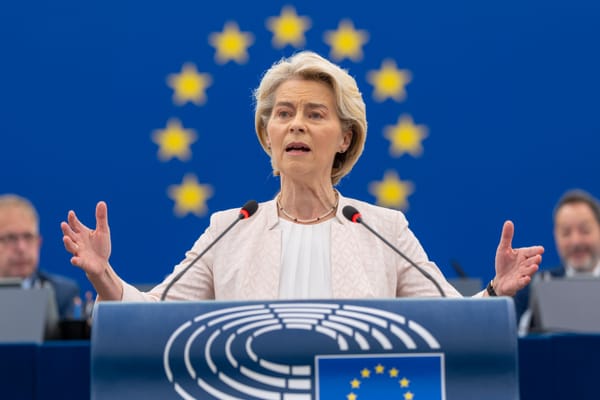When Ursula von der Leyen unveiled her team for the next European Commission last week, even the mainstream media, usually sycophantically deferential to Brussels, was forced to admit that what the commission president has pulled off is nothing short of a coup. By appointing loyalists to key positions, sidelining critics, and creating a complex system of dependencies and overlapping responsibilities in which no one can gain too much influence, von der Leyen has secured complete control over the European Union’s executive body. This also involved sidelining traditional heavyweights like France to the benefit of countries like the Baltic states (total population: a bit more than 6 million), which have now been bumped up the political food chain because they share von der Leyen’s über-hawkish stance toward Russia.
Politico, the organ of the Brussels chattering classes, described von der Leyen’s move as a “power grab” that will grant her “unfettered control” over EU politics. “She will be even more in control of everything,” one EU official was quoted as saying. “Who thought that was even possible?” The German newspaper Die Welt was also uncommonly harsh in its assessment: “With a tactical masterpiece, [von der Leyen] has curtailed the power of her commissioners—while simultaneously increasing her own. The new commission is above all about one thing: the cementing of von der Leyen’s power.”
“Von der Leyen’s ‘power grab’ didn’t occur out of the blue.”
While it’s hard to disagree with such appraisals, their tone of surprise and bewilderment seems disingenuous. Von der Leyen’s “power grab” didn’t occur out of the blue: It is the culmination of a slowly unfolding process that until now was cheered on by the legacy media. As I explained in a recent report published by MCC Brussels, the commission has been stealthily expanding its powers for a long time, evolving from technical body into full-blooded political actor, resulting in a major transfer of sovereignty from the national to the supranational level at the expense of democratic control and accountability.
